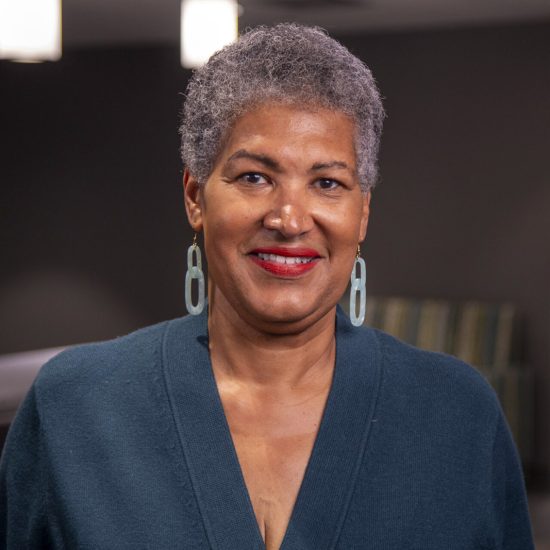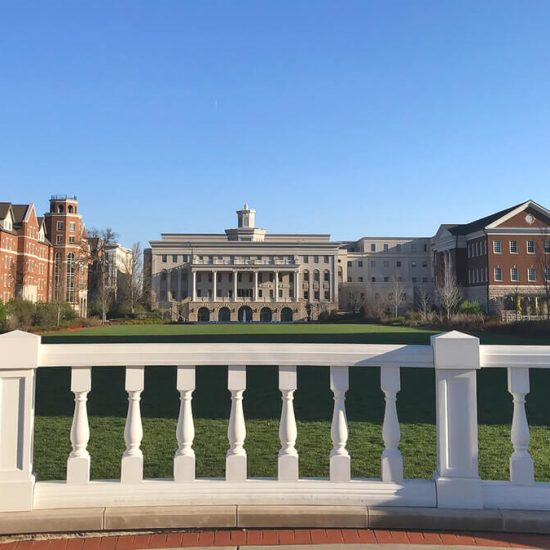
(Kansas Reflector) — When faculty and staff at Sterling College received an updated employee handbook in August 2023, they were quickly alarmed by changes made without their input. Those concerns sparked a year of frustration with president Scott Rich’s leadership, frustration that continues as a new school year approaches.
In April, a majority of faculty voted to express a lack of confidence in Rich following months of meetings, letters and complaints. Of the 49 faculty members eligible to vote, 29 said they had either minimal or no confidence in Rich. Nine said they had substantial confidence, and only one voiced full confidence. Ten abstained.
One of the biggest concerns for faculty was new language in the handbook they said created confusion and a chilling effect on what they could say and do, both at work and in their private lives. Many worried about creating barriers for LGBTQ+ inclusion on campus.
“There’s all these things that are in the back of one’s mind,” assistant professor Todd Vogts said. “How long can I continue to be OK with some of these decisions that seem to be directly impacting not only my fellow faculty members but the students in negative ways?”

(Sterling College)
Sterling faculty have left the college, located in the town of Sterling in central Kansas, and some suggested the exodus would continue if concerns remain unaddressed.
Multiple staff members said they were frustrated by a systemic lack of collaboration on major decisions in recent years, including administration eliminating a diversity initiative and pushing back on a Catholic student group. Those frustrations were compounded as budgets decrease and enrollment drops.
“It seemed that the will of everyone involved was being thwarted by the president without any type of transparency or discussion,” said former Sterling staff member Andy Giorgetti.
Rich is less active around campus, faculty members said. He lives in Hutchinson, a 30-minute drive from Sterling.
“It’s that lack of communication, that unwillingness to listen to concerns,” Vogts said. “Even when there appears that someone is listening, nothing changes. And so that’s just seeded a lot of frustration.”
Tony Thompson, a Sterling graduate and former two-decade member of the board of trustees, said he believed a change in leadership was necessary for the college.
“I definitely love Sterling College and supported her for over 50 years,” he said. “Unfortunately, I do not currently support the current leadership, and there needs to be a change.”
He said his decision was based solely on performance, citing deteriorating faculty relationships, declining enrollment and poor communication. Thompson has long been a supporter and donor for the college and in 2006 won Sterling’s Distinguished Service Award.
Rich said in a statement he was unaware of the faculty’s vote, but the college’s board of trustees held its own unanimous vote reaffirming support for the president.
Randy Henry, chairman of the Sterling College board of trustees, said the board fully supports Rich.
“We want everyone to feel they are valued and the board has tried to do everything we can to try and bring these faculty members and the president to a place where they can work together, as has been the case for almost all of Dr. Rich’s tenure,” he said.
A Kansas Reflector investigation — based on interviews with a half-dozen current and former Sterling College staff members and a review of documents outlining complaints — found widespread concerns about unilateral policy changes, forced religious beliefs, the administration’s willingness to listen to concerns, and discrimination of LGBTQ+ students.
A Chilling Effect
Employees were given a new handbook in August 2023 and asked to sign a statement acknowledging they would comply with its contents. Many of them still haven’t signed the agreement.
Multiple faculty members expressed concern the phrasing would allow the school to terminate them for being too liberal in their beliefs or coming from a denomination that theologically varied from the school.
The handbook included new wording requiring staff to “exhibit habits and actions consistent with biblical standards and in accordance with Sterling College’s Mission Statement, Statement of Faith, and Faith Perspectives.” Staff would face disciplinary action including termination if they violated the requirement.
According to Sterling’s website, the college is “thoroughly Christian, but not in any sense sectarian.” Multiple faculty members said the new employee handbook jeopardizes that idea by forcing faculty to personally agree with certain beliefs or face punishment.
“When we have these issues and we can’t talk about them, faculty and staff don’t feel safe in this community, in our jobs, if we can’t actually know where we stand on these issues,” Giorgetti said.
The handbook also added a section on social media usage that said staff should consider their social media presence to be an extension of their classroom or office. Multiple faculty said they worried about how the policy could be interpreted. The ambiguity left them wondering if they could be fired for personal social media activity like adding a pride flag to their profile picture.
The Faculty Welfare Committee — faculty members who act as liaisons with administration — began hearing concerns as soon as the handbook was released. They compiled the issues and sent them to human resources, Rich and the board of trustees. At each stage, they said they were met with an initial willingness to discuss changes or clarifications before being shut down.
The final blow came when the board of trustees responded to detailed faculty concerns by saying it had voted to reaffirm confidence in Rich and scolded the faculty for bringing the complaint to the board.
“The board will not be making a habit of dealing with these types of issues,” Henry, the board chairman, wrote in a May letter to faculty.
In a statement, Rich said handbook revisions occur at the will of the human resources department. The edits were made, he said, “to further protect the institution.”
The new language, which faculty said was ambiguous and confusing, left them with many questions about what they could say or do, creating a chilling effect on both their professional and personal lives.
“I think it’s incredibly important to be open to all of the ideas and to weigh them and evaluate them,” said professor Ken Troyer. “I’m not saying, you know, everything needs to be supported, but everything needs to at least be able to be heard and be discussed.”
Grappling with LGBTQ+ Inclusion
Some staff worried the handbook change could create an unwelcoming space for LGBTQ+ students on campus. Staff were asked to affirm a Statement on Life, Marriage, Gender Identity and Human Sexuality, which includes anti-LGBTQ+ language.
Sterling is a religious college, but students don’t necessarily hold the same beliefs as the college, especially because many of them are recruited for athletics.
“I think it’s our job to just welcome everybody,” Troyer said. “I mean, if Christianity is important and we want people to hear that message, then it’s great if you’re a believer. And if you’re not, cool, come along for the ride and enrich our lives by giving us different perspectives. And maybe we can do the same.”
Adam Moore lived through this tension firsthand as a student. In 2019-20, he was elected student body president. He was the first openly gay student to hold the role. Growing up in nearby Hutchinson, he knew that being gay and attending Sterling wouldn’t be easy. But he was drawn to the college’s debate team and liked that it was a Christian school where he could continue his faith. He arrived committed to having difficult conversations.
His challenges began when he became a resident assistant for the dorms. He had weekly meetings with administration he said felt like “conversion therapy.” When he was elected student body president, students asked to start a gay-straight alliance. Clubs normally received approval from the student government, he said. Moore passed along his approval of the club to administrators, who swiftly overturned it.
“Gay people feel ostracized from the religious community,” Moore said. “It definitely has affected me. But I’ve also seen a church community that can be welcoming and loving and caring for LGBTQ+ people. … If I had only talked to administrators about this, there’s no chance I’d ever be a part of a church community again.”
The battle over LGBTQ+ inclusion spread throughout campus. When faculty at Sterling conduct research, they are supposed to follow American Psychological Association standards, which say to include an “other” option when asking about gender. But Rich only wanted to include “male” and “female” on surveys, Vogts said.
After a year, faculty members were allowed to add the “other” option to surveys after Rich took the clash to the cabinet, a group of representatives from across campus selected by the president that advise him. Rich said staff are aware of the college’s biblical foundation when hired. He said there were no personal interpretations involved and the board had laid out how the administration was to run the college.
“If (faculty) violate campus policies then they could be reprimanded for violating such policies,” Rich said. “The board and cabinet extend grace until grace has been exhausted.”
But faculty said their concerns were not with the religious foundations of the college. Because Christianity has diverse denominations, many worried that cracking down on what staff could say or believe would exclude some groups. Before the changes, the handbook allowed for more diversity, they said.
“I’m a Christian. I have no problem saying that,” Troyer said. “Our statements have enough wiggle room and are kind of vague in some ways, that it allows for a Baptist and a Catholic and a Mennonite and all of these different denominations to still be able to work for the same common cause.”
Staff say they see a clear way forward: a seat at the table.
“I would just like to see more deliberation and more collaboration about these types of decisions,” Vogts said.
All in This Together
Many of them believe that Sterling is a place with a solid mission, but they say recent decisions have jeopardized the faculty’s ability to carry it out, rendering the college almost unrecognizable. While many have left the school, those who stayed did so out of love for the college and its students.
“There needs to be a greater sense of everyone, all employees, are all kind of in this together, moving forward in lockstep,” said Troyer, who has taught at Sterling for nearly two decades. “But we need to reach the point where we at least are like, ‘Oh, I understand why that decision is made.’ ”
Rich said he intended to address frustrations by reminding staff that “they are always welcome to visit with the president about anything — including concerns.”
Moore said there are a lot of lessons that can be learned from the small college of less than 1,000 north of Hutchinson. He saw many sides of the community during his time there, including with Rich. He said while Rich held opinions he viewed as severely harmful, he also saw a side of the leader that was thoughtful and authentic.
“There’s a lot of trauma that is created,” Moore said. “Ever since I’ve left Sterling, I continue to grapple with these two very different Sterlings that I know.”
Now living in Emporia, Moore keeps an eye on the college, hoping that one of the two sides will win out in the end.
“Even though Sterling is a teeny tiny community,” Moore said, “I think that there are so many others just like it that the story can only help.”
This piece was originally published by the Kansas Reflector, which is part of States Newsroom, a nonprofit news network supported by grants and a coalition of donors as a 501c(3) public charity. Kansas Reflector maintains editorial independence. Contact Editor Sherman Smith for questions: info@kansasreflector.com. Follow Kansas Reflector on Facebook and X.






